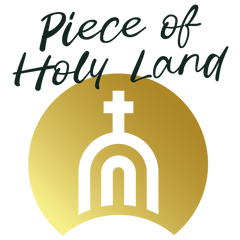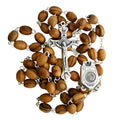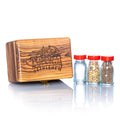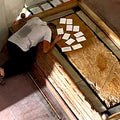Holy Water Traditions Across the Christian World
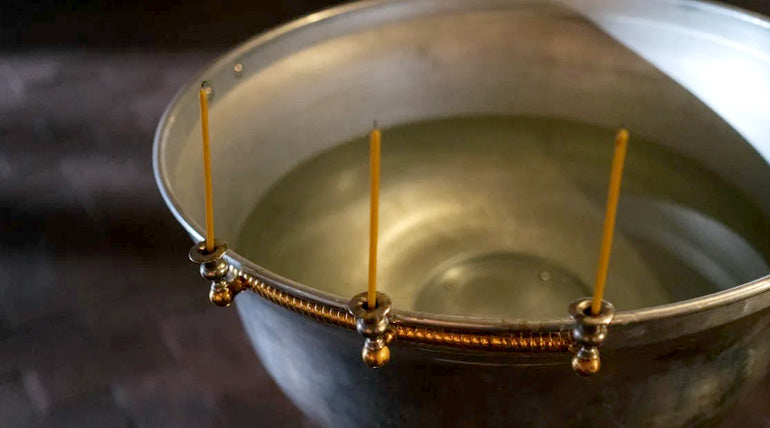
Blessed Water as a Sacred Element in Christian Life and Ritual
Holy Water holds a profound place in Christian traditions worldwide. From its biblical roots to its use in daily devotion and sacred ceremonies, this blessed element symbolizes purification, renewal, and God’s grace. Christians across denominations embrace Holy Water as a tangible reminder of their faith, connecting them to Christ’s teachings and the promises of baptism.
Holy Water in the Bible: A Foundation of Faith
Holy Water’s significance in Christianity is deeply rooted in the Scriptures, where water is portrayed as a symbol of purification, life, and divine grace. Throughout the Bible, water appears as a recurring motif, representing God’s presence and the sanctification of His people. From the very beginning, in Genesis 1:2, water is depicted as a fundamental element of creation, symbolizing the Spirit of God hovering over the waters and bringing forth life. This spiritual association makes water not only essential for physical survival but also deeply meaningful in Christian worship and practice.
One of the most powerful biblical moments involving water is the baptism of Jesus Christ in the Jordan River. As described in Matthew 3:16-17, “As soon as Jesus was baptized, He went up out of the water. At that moment heaven was opened, and He saw the Spirit of God descending like a dove and alighting on Him. And a voice from heaven said, ‘This is my Son, whom I love; with Him I am well pleased.’” This event signifies the sanctity of baptismal water, marking it as a medium for the believer’s rebirth into a life of grace and redemption.

Christ’s Baptism Site: The Jordan River
The Jordan River, in Jordan Valley, north of the Dead Sea, where Jesus was baptized, holds an unparalleled place in Christian faith. The exact place is located near the ancient city of Jericho (West Bank), this sacred site, known as Qasr al-Yahud, is visited by pilgrims from around the world who seek to renew their baptismal vows and experience the profound spiritual connection to Christ’s life and ministry.

The Jordan River’s spiritual significance predates Jesus’s baptism. In the Old Testament, it was the site where Joshua led the Israelites into the Promised Land (Joshua 3:17) and where the prophet Elijah was taken up to heaven in a chariot of fire (2 Kings 2:11-14). These events imbue the river with layers of divine history, making Holy Water from the Jordan River a deeply sacred element for Christians.
Mary’s Well: A Source of Purity and Grace
In Nazareth (Israel), Mary’s Well stands as another revered site connected to Holy Water. According to tradition, this is where the Virgin Mary would have drawn water for her household. The well is associated with the Annunciation, the moment when the angel Gabriel revealed to Mary that she would bear the Son of God (Luke 1:26-38). This connection makes Holy Water from Mary’s Well a symbol of purity, grace, and the divine favor bestowed upon her.

Mary’s Well has also been a place of prayer and devotion for centuries. Believers visiting Nazareth often take Holy Water from this sacred spring, using it for blessings, protection, and as a reminder of Mary’s role in salvation history. The connection to the Virgin Mary adds a profound layer of spiritual meaning to this blessed water, making it an ideal keepsake or gift for Christians seeking to strengthen their faith.

The Role of Holy Water in Different Christian Traditions
Catholic Traditions
In Catholicism, Holy Water is prominently used for blessings, sacramentals, and rituals of protection. Catholics often dip their fingers in Holy Water fonts at church entrances, making the Sign of the Cross as an act of purification and remembrance of their baptism. Holy Water is also used to bless homes, objects, and even individuals during significant life events.
Orthodox Traditions
For Orthodox Christians, Holy Water is integral to Theophany, celebrated on January 6th. Priests bless water in ceremonies that commemorate Jesus’s baptism in the Jordan River, and this water is distributed to the faithful. Families may keep bottles of Holy Water at home for blessings and protection throughout the year.
Protestant Traditions
While not universally practiced, many Protestant denominations also use Holy Water in baptismal ceremonies, emphasizing its symbolism of cleansing and renewal. Holy Water’s presence in these traditions often reflects a focus on its biblical origins and spiritual significance.

Incorporating Holy Water into Modern Faith
In today’s fast-paced world, Holy Water continues to provide solace and connection. Whether through a bottle of Holy Water from the Jordan River or a keepsake vial from Mary’s Well, these sacred elements remind believers of their spiritual journey. They encourage moments of reflection, prayer, and an enduring connection to Christ’s promises. As Isaiah 12:3 proclaims, “With joy you will draw water from the wells of salvation.” Holy Water invites Christians to live their faith daily, seeking God’s grace and protection in every
Drawing Holy Water from these sacred sites—the Jordan River and Mary’s Well—brings a tangible connection to biblical history and the life of Christ. Whether used in baptismal ceremonies, sprinkled in homes for blessings, or incorporated into daily prayer rituals, Holy Water serves as a bridge between the physical and the spiritual, offering believers a way to immerse themselves in their faith and the profound stories of Scripture.
For Christians unable to visit the Holy Land, Holy Water from the Jordan River or Mary’s Well provides a powerful way to connect to these sacred sites. It allows believers to partake in the blessings of the Holy Land without physically being there, enriching their spiritual journey and serving as a reminder of the promises of God. As Jesus declared in John 7:37-38, “If anyone is thirsty, let him come to me and drink. Whoever believes in me, as Scripture has said, rivers of living water will flow from within them.”
These sacred waters, blessed by their association with Christ’s life and Mary’s purity, invite Christians to reflect on their faith and draw strength from the divine narrative that continues to inspire millions worldwide.
Bringing Holy Water into Daily Life
As mentioned before, Holy Water is not limited to church rituals; it has a meaningful place in the home. Families use it to bless their homes, seek divine protection, and accompany daily prayers. A small vial of Holy Water, particularly from the Jordan River or Mary’s Well, can serve as a personal keepsake and a reminder of faith.
A Guide to Using Holy Water in Daily Life
-
Bless Your Home: Sprinkle Holy Water in each room of your house while reciting a prayer of blessing, such as Psalm 121:8, “The Lord will guard your going out and your coming in from this time forth and forever.”
-
Begin and End the Day: Dip your fingers in Holy Water and make the Sign of the Cross in the morning to start your day with God’s protection. Repeat this at night as a gesture of gratitude and prayer.
-
Bless Personal Items: Use Holy Water to bless objects like rosaries, crosses, or even vehicles, asking for God’s protection over them.
-
Prayer Rituals: Incorporate Holy Water into your prayer routine. Before starting your prayers, touch the Holy Water to your forehead as a sign of cleansing and preparation.
-
Comfort in Difficult Times: During moments of anxiety or illness, use Holy Water as a symbol of healing and renewal, reciting verses like Isaiah 41:10, “Fear not, for I am with you; be not dismayed, for I am your God.”
-
Celebrating Milestones: Use Holy Water during significant life events, such as blessing a newborn or marking a wedding anniversary.
These small practices ensure that Holy Water remains a living, active part of your daily faith journey, deepening your connection to God and the Holy Land.
Holy Water as a Gift and Keepsake
Holy Water from the Holy Land, such as the Jordan River or Mary’s Well, makes for a meaningful Christian gift. Packaged in handcrafted olive wood boxes or elegant vials, these keepsakes carry the blessings of the Holy Land. They are perfect for special occasions such as baptisms, weddings, or house blessings, offering recipients a tangible connection to the sacred traditions of Christianity.
Conclusion: Holy Water – A Universal Blessing
Holy Water transcends cultural and denominational boundaries, uniting Christians in their shared devotion. Its significance, drawn from the Bible and centuries of tradition, remains a cornerstone of faith. Whether used in rituals, prayer, or as a gift, Holy Water connects believers to the Holy Land and the heart of their spiritual heritage.
SHARE:

